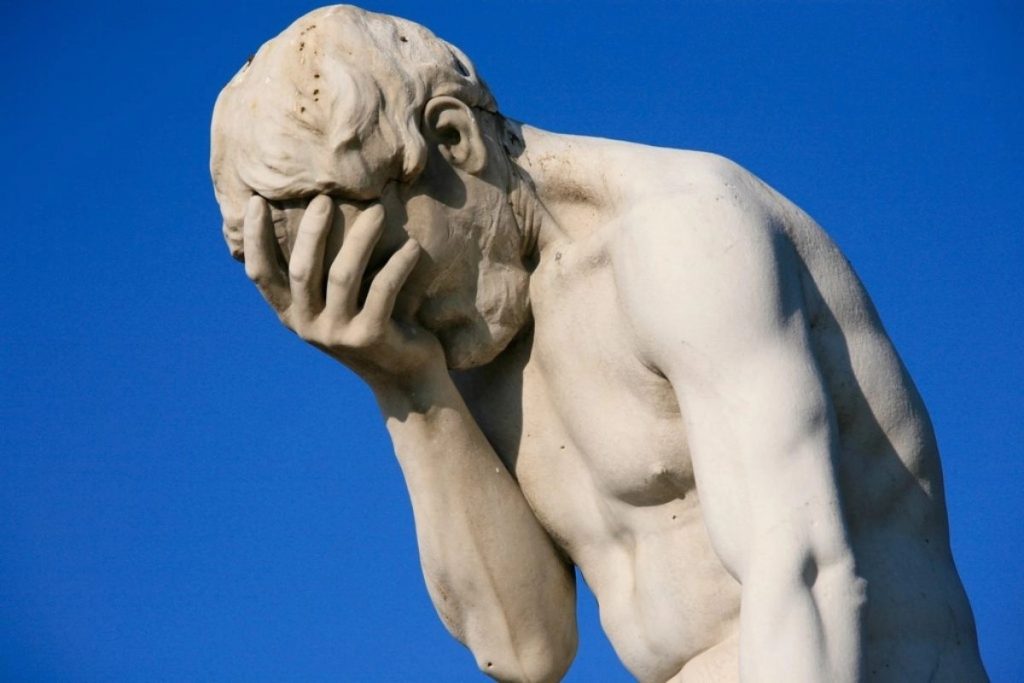
A National Failure
The United States has lost more than one million people to overdoses since 2000 — more than the number of Americans lost in all wars in the past 150 years put together, including both World Wars. Yet neither Democrats nor Republicans have tackled the problem with the seriousness or nuance it deserves.
When nearly 3,000 Americans died in the Sept. 11 attacks, we reorganized the federal government and spent trillions of dollars in an (often misguided) effort to make us safer. Yet an even larger number die every week from drugs and alcohol, and we can’t even be bothered to provide effective treatment to most of those in need. This is a staggering national failure.
Nicholas Kristof
Religions
Religions devised for a social purpose [he wrote, more than seventy years ago], like Roman emperor-worship or modern attempts to ‘sell Christianity as a means of saving civilisation’, do not come to much. The little knots of Friends who turn their backs on the ‘World’ are those who really transform it.’
C S Lewis
Dissonance
…in Ohiyesa’s words, ‘Christianity and modern civilisation are opposed and irreconcilable.’ In his 1986 book The Civilisation of Christianity, Catholic priest and theologian John L. McKenzie put the same point even more sharply. ‘There is a deadly and irreconcilable opposition between Western civilisation and Christianity,’ he wrote, ‘and one of them must destroy the other.’ If that’s true, then wielding the Christian faith as a weapon to defend this thing called ‘Western civilisation’ is a lost battle from the start. Our culture may have been nominally Christian five hundred years ago, but for a long time now it has been the culture of the Enlightenment, of modernity, of the Machine, of Mammon. It valorises not God but the world.
Paul Kingsworth
Jesus is the Center
Jesus Is the Center Some have described what’s happening in deconstruction as a kind of “centered-set” thinking. Time and time again, we’ve found that deconstructors want to get back to Jesus and want to base everything they believe on Jesus. They often describe a sensation of discovering the Bible all over again when they begin to read the Gospels once again. They describe a shift to thinking more like Jesus, acting more like Jesus, and letting Jesus’ vision for the kingdom reshape their life. He becomes the center of their life.
Centered-set thinking contrasts more directly with bounded-set thinking. A bounded set emphasizes boundaries. It defines who is “in” and who is “out.” It spells out in detail what an acceptable person must believe and how such persons should behave. Only those who are inside the boundaries can belong to the group. Uniformity characterizes the group, and the uniformity is conservative in the sense that it is neither flexible nor open to change. Either you’re in or you’re out, and if you’re in, you’re all in.
The common problem with bounded sets is determining how to define the boundaries. A bounded-set person could risk losing Jesus in their efforts to build walls at the borders of their faith. Deconstructors would say those who think this way have lost Jesus because they focus excessively on who is in and who is out, and especially on keeping the wrong people out.
Tommy Preson Phillips
Zero Sum Love
The problem comes when we think of love as like a kind of cake. There are only so many slices of cake and you have to be careful who you give them out to because sooner or later they will run out. In this way of thinking, love is a limited commodity where you have to be sparing who you love, because there isn’t enough to go round.
Yet divine love is a bit more like fire. When you take a light from a candle and light another candle with it, the first candle is not diminished, but continues to burn brightly. Fire can be passed on from one place to another and spread widely because it’s not finite in the way that a cake is.
Gtaham Tomli
It is not possible to pursue Jesus and be obsessed with bigness at the same time without one of them becoming diminished in the process.
De-sizing the Church/ How Church Growth Became a Science, Then an Obsession, and What’s Next
Generalities
We live in a culture of statistics – and they hide a lot. They obscure us in the reduction of our lives to generalities. None of us is a percent. None of us is an aggregate. Each of us is a priceless treasure of whom God is mindful. You cannot count the hairs on the heads of humanity in general. But the hairs on the head of each of us is numbered . Sparrows do not fall to the ground in general. It is the single sparrow that God notes, and infinitely notes each sparrow, fallen and otherwise. This is the wonder of it all.
Fr Stephen Freeman
A capella Singing
Nadia Bolz – Webber
It is an extraordinary thing to be raised in community. And I didn’t realize during my childhood how unusual it is in America these days to really have such a tight knit community. So we saw the same people several times a week. And they would come to our house for devotionals, and we’d share meals, and we went to church, you know, Sunday morning, Sunday night, Wednesday night.
And then there was stuff in between, and so just regularly seeing the same people and having them in our lives, just that alone is pretty remarkable. And of course the singing was, um, absolutely extraordinary.
It was my first language, truly, singing a cappella, four part harmony. I probably could do that before I could speak.
And it completely ruined me for all, for all other church music. I have never, never felt moved by an organ or a band, anything, but unadorned human singing. It has never, moved me in a way I think it does other people. But I always feel bullied by the organ, if I’m honest. Like, I’m a theologian in residence at a couple of big churches, like an Episcopal cathedral and a big Presbyterian church, and they have beautiful organs and magnificent music programs.
And I mean, as music, it’s nice, but I’ve never experienced it as worshipful in the way I have just acapella singing.
Certainty
“In the course of a long life in the service of our Mother the Church, let me tell you that there is one sin I have come to fear above all others. Certainty. Certainty is the great enemy of unity. Certainty is the deadly enemy of tolerance.”
Cardinal Lawrence (Ralph Fiennes), Conclave
Stupid
Italian historian Carlo Cipolla once put it, “The probability that a certain person be stupid is independent of any other characteristic of that person.”
If somebody comes up to you and says, “I think I’m going to take a hike in a lightning storm with a copper antenna on my head,” stupidity replies, “That sounds like a really great idea!” Stupidity is the tendency to take actions that hurt you and the people around you.
German theologian Dietrich Bonhoeffer put it: “This is virtually a sociological-psychological law. The power of the one needs the stupidity of the other.”
HAPPY BIRTHDAY

Today is special. Ann’s birthday.
I am so thankful for her. Wonderful wife, mother, mother-in-law, grandmother, great grandmother, sister and much more.
I love you.

ARCHIE update

Thursday 2-6-25

STILL ON THE JOURNEY